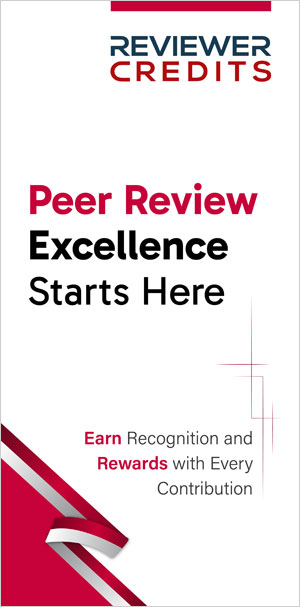The Peer Review Crisis: Delays, Bias, and Burnout

It’s a familiar scene for many researchers: you submit your manuscript, breathe a sigh of relief, and then wait. And wait. Sometimes for months. Behind the scenes, editors scramble to find reviewers, reviewers juggle deadlines and obligations, and the manuscript sits in limbo. Peer review, once hailed as the gold standard of academic quality control, is showing serious signs of strain.
The delays are only part of the story. Bias, both subtle and systemic, can creep into evaluations. Reviewers, often overworked and under-recognized, are burning out. And the sheer volume of submissions continues to rise, leaving journals overwhelmed and researchers frustrated.
What we’re witnessing isn’t just a slowdown. It’s a system stretched to its limits, and many are beginning to ask: Is peer review still working the way we need it to? Or is it time for a change?
The Waiting Game: Peer Review Delays
It’s no secret that the timeline from submission to publication has grown frustratingly long. According to a 2023 report by Publons/Clarivate, the average time for peer review across disciplines exceeds 100 days, with some journals taking over six months to make a decision.
These delays slow down science, frustrate authors, and can jeopardize time-sensitive research. A prolonged review process can directly impact career progression for early-career researchers, especially those seeking funding or promotion.
- Reviewer shortages are at the core. Journals are publishing more articles than ever, but the number of willing and qualified reviewers hasn't kept pace.
- Many editors report asking 8–10 people before someone agrees to review.
- With no compensation and little recognition, many researchers simply decline, citing workload and time constraints.
Bias in the System
Peer review aims to be objective, but reality tells a different story. Several studieshighlighted persistent biases in peer review related to gender, geography, institutional prestige, and language.
Some common forms of bias include:
- Affiliation bias: Research indicates that there is an affiliation bias in peer review, where editors and reviewers tend to favor authors from prestigious institutions. This bias can lead to a disproportionate advantage for researchers affiliated with well-known organizations, potentially marginalizing quality work from lesser-known institutions.
- Gender bias: A comprehensive study analyzing data from 145 scholarly journals found that women are systematically less involved in peer review and are rarely appointed to prestigious editorial positions. This underrepresentation could influence perceptions of adequacy and potential success among female authors.
- Language bias: Manuscripts written by non-native English speakers are more likely to be rejected or heavily criticized.
Even double-blind review systems, which mask the identities of authors and reviewers, don’t fully eliminate these issues. A 2023 study in PLOS ONE found that anonymization can reduce bias to some extent but may also complicate editorial workflows.
Reviewer Burnout Is Real
Peer review is voluntary work. And in a publish-or-perish culture, it’s increasingly being viewed as an unpaid obligation, not a scholarly duty.
Frontiers in Research Metrics and Analytics article coined the term "reviewer fatigue" to describe the growing reluctance among academics to accept review invitations. Reviewer overload has led to rising decline rates and lower-quality reviews.
What’s causing the burnout?
- Lack of recognition or academic credit
- Over-reliance on a small pool of reviewers
- Increased journal submissions without proportional growth in the reviewer base
Many feel the system is unbalanced: authors are rewarded for publishing, but reviewers, who safeguard quality, get little more than a thank-you email.
Solving the peer review crisis won’t be easy, but a few ideas are gaining traction:
1. Reviewer Incentives
Organizations like Publons(now part of Web of Science) have made strides in recognizing peer review as a scholarly output. Verified review records can now be included in tenure and promotion files.
Other suggestions include:
- Providing APC discounts or subscription benefits to reviewers
- Offering monetary compensation for in-depth reviews (though controversial)
2. AI-Assisted Reviewing
Artificial intelligence is being explored as a way to reduce reviewer burden. Tools like Proofig and StatReviewer can help detect statistical errors and duplicated images before the manuscript even reaches a human reviewer. While AI won't replace peer review, it can streamline routine checks and free up time for expert analysis.
3. Open Peer Review
More journals are experimenting with open peer review models, where reviewer identities and reports are published alongside the article. This model:
- Encourages constructive feedback
- Holds reviewers accountable
- Helps early-career researchers understand how peer review works
However, it also raises concerns about reviewer candor and reputational risk, especially in small academic circles.
4. Peer Review Training
Few academics are formally trained in how to peer review. Initiatives like the COPE Peer Review Ethical Guidelines and Elsevier’s Certified Peer Reviewer Course are beginning to change that. Professionalizing peer review could improve both quality and reviewer satisfaction.
Final Thoughts
Peer review remains the bedrock of scientific publishing—but it’s no longer sustainable in its current form. The pressures of increasing submission volumes, reviewer fatigue, and long delays are pushing the system to its limits.
Fixing peer review will take more than better software or faster workflows. It will require a cultural shift in how we value, reward, and support the reviewers who help science move forward.
If you’ve experienced peer review delays, burnout, or bias, you’re not aloneand your voice matters in shaping what comes next.
Keywords
Peer review academic publishing reviewer fatigue peer review bias publication delays scholarly communication open peer review AI in peer review reviewer recognition research integrity COPE guidelinesDisclaimer
The views and opinions expressed in this article are those of the author(s) and do not necessarily reflect the official policy or position of their affiliated institutions, the Asian Council of Science Editors (ACSE), or the Editor’s Café editorial team.




TCHOKOTE EUGENIE
29 May, 2025Most respectfully,
Thank you Jean Ashley for this insightful and comprehensive highlight on peer- review activities showing all the sides of the coin. I will like that the processes which could be cumbersome, for the submission of review comments and registration for the rewards be also looked upon and made simple.